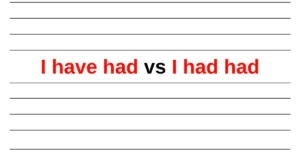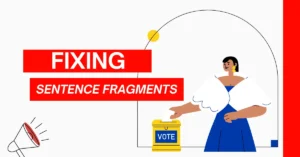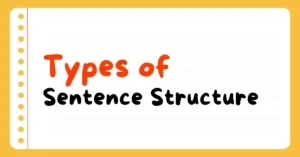In this English Grammar lesson, you’ll be learning about sentence structure, specifically focusing on simple sentences, fragments, and run-on sentences.
Have you ever read or written a sentence that didn’t quite make sense? Maybe it felt like something was missing, or it seemed to go on and on without a clear break. That’s what happens when we use fragments or run-ons. I will help you learn how to identify and fix these issues, so your sentences are always clear and complete.

Simple Sentence
A simple sentence needs three things: a subject, a predicate, and a complete thought. If any of these are missing, the sentence becomes a fragment. And if sentences run together without proper punctuation, they become run-ons.
Components of a Simple Sentence
A simple or complete sentence must have three components:
- A subject: This is who or what the sentence is about.
- A predicate: This is the verb or the action part of the sentence.
- A complete thought: The sentence can stand alone and make sense. It is independent.

Fragment Sentences
If a sentence is missing either the subject or the predicate, it is like a piece of the heart is missing, and the sentence will not make sense. These types of sentences are called fragment sentences. They are not complete thoughts.
Examples of Fragments and How to Fix Them
Here is an example of a complete sentence:
- The white rabbit played at the park.
To change a fragment into a simple or complete sentence, you must add the missing subject or predicate.
Example 1: Missing Predicate
- Fragment: The white rabbit.
- Fixed: The white rabbit hopped across the field.
By adding a verb (predicate), the sentence now expresses a complete thought.
Example 2: Missing Subject
- Fragment: Played at the park.
- Fixed: The children played at the park.
By adding a subject, the sentence now expresses a complete thought.

Run-On Sentences
A run-on sentence is a group of words with more than one complete thought and incorrect punctuation. It sounds like someone is rambling, and the sentences are running together.
Examples of Run-On Sentences:
- Daniel’s homework is difficult he needs his teacher to help him with it.
- The boys wanted to go to the park they decided to stay home.
How to Fix Run-On Sentences
There are two ways to fix a run-on sentence:
- Change it into two simple sentences.
- Example: Daniel’s homework is difficult. He needs his teacher to help him with it.
- Combine the complete thoughts using conjunctions (for, and, nor, but, or, yet, so).
- Example: The boys wanted to go to the park, but they decided to stay home.
Explore More:
- Well vs. Good: What’s the Difference and When to Use EachWhat is the difference between good and well. These two words might seem …
- Have You vs. Did You: What’s the Real Difference?Imagine you’re meeting a friend in the evening, and you …
- Difference Between I have had and I had hadHave you ever found yourself tangled in the web of …
- Understanding and Fixing Sentence FragmentsIn this lesson, you will be learning about sentence fragments. Ever …
- Types of Sentence Structure: Simple, Fragmented, or Run-OnIn this English Grammar lesson, you’ll be learning about sentence structure, …




